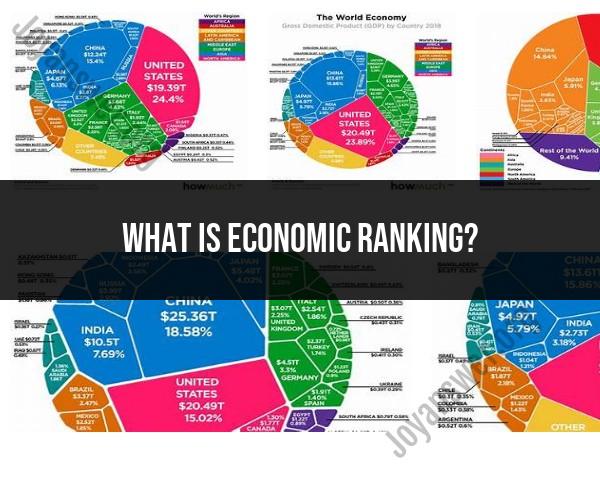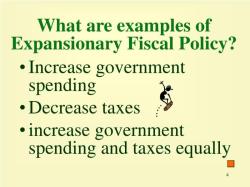What is economic ranking?
Economic ranking refers to the process of assessing and comparing the economic performance or strength of different entities, such as countries, regions, cities, or companies. This assessment often involves the analysis of various economic indicators, metrics, or criteria to determine the relative standing or position of the entities being compared. The goal is to provide insights into the economic health, development, or competitiveness of these entities.
Key points related to economic ranking include:
Indicators Used:
- Economic ranking involves the use of various economic indicators and metrics. These indicators can include measures such as Gross Domestic Product (GDP), GDP per capita, unemployment rates, inflation rates, trade balances, and other relevant economic statistics.
Comparative Analysis:
- The process of economic ranking is essentially a comparative analysis. Entities are ranked based on their performance in relation to one another. This comparison helps highlight strengths, weaknesses, trends, and disparities in economic performance.
Purpose and Context:
- Economic ranking serves different purposes depending on the context. Countries may be ranked to assess their global economic competitiveness, regions may be ranked for investment attractiveness, and companies may be ranked within industries for financial health.
Global, National, or Regional:
- Economic ranking can be conducted at different levels. Global economic rankings compare countries on a global scale, national rankings focus on the economic performance of countries, and regional rankings assess economic strength within a specific geographic area.
Competitiveness Rankings:
- Competitiveness rankings assess the ability of entities (countries, regions, or cities) to compete effectively in the global or regional economy. These rankings often consider factors such as infrastructure, innovation, education, and business environment.
Ease of Doing Business Rankings:
- Some economic rankings focus on the ease of doing business within a particular country or region. These rankings consider factors like regulatory environment, business infrastructure, and administrative efficiency.
Financial Performance Rankings:
- In the business context, economic ranking may involve the assessment of the financial performance of companies within a particular industry. Metrics such as revenue, profit margins, and market share may be considered.
Human Development Index (HDI):
- The Human Development Index is an example of a composite economic ranking that considers factors beyond economic indicators. It includes health, education, and income to assess the overall development of countries.
Periodic Updates:
- Economic rankings are often updated periodically to reflect changes in economic conditions, policies, and global or regional dynamics. Annual reports and indices are common tools used to communicate these rankings.
Use in Decision-Making:
- Economic rankings are frequently used in decision-making processes by policymakers, investors, businesses, and other stakeholders. They provide valuable insights that can inform strategic decisions, policy formulation, and investment choices.
It's important to note that economic ranking is a complex process, and the interpretation of rankings requires a nuanced understanding of the methodologies used, the context in which the rankings are applied, and the specific goals of the assessment. Different organizations and institutions may use varying criteria and methodologies, leading to different rankings for the same entities. As such, users of economic rankings should be aware of the methodologies employed and consider multiple sources for a comprehensive understanding.
Explanation of economic ranking and its significance in various contexts
Economic Ranking: Understanding the Scales and Impacts
Economic ranking refers to the process of ordering and comparing economies based on various metrics. These metrics can range from simple measures like GDP (Gross Domestic Product) to more complex indices that consider factors like human development, income inequality, and institutional quality. By ranking economies, we gain insights into their relative wealth, productivity, and overall well-being.
Significance of Economic Ranking:
Understanding economic rankings is crucial for various reasons:
- Benchmarking and Competitiveness: Countries use rankings to assess their economic performance against peers, identify areas for improvement, and benchmark their progress towards development goals.
- Investment and Trade: Investors may use rankings to assess the potential risks and returns of investing in different countries. Similarly, governments and businesses use them to identify potential trading partners and assess market opportunities.
- Policy Formulation and Development: Rankings can inform policymakers about pressing issues facing different economies and guide them in formulating targeted policies and interventions.
- Monitoring Progress and Development: Tracking changes in economic rankings over time can provide insights into the effectiveness of implemented policies and identify areas where further initiatives are needed.
Limitations of Economic Ranking:
While valuable, economic rankings should be interpreted with caution:
- Choice of Metrics: Different rankings often use different metrics and methodologies, leading to discrepancies in results. It's crucial to understand the underlying assumptions and limitations of each ranking.
- Oversimplification of Complexities: Rankings can paint a simplified picture of complex economic realities, often failing to capture nuanced differences and challenges faced by different countries.
- Focus on Aggregate Data: Rankings often rely on aggregate data, which may mask significant inequalities within a country.
Types of Economic Rankings:
Several popular economic rankings exist, each focusing on different aspects of an economy:
- GDP Per Capita: A widely used measure of average incomiving standards.
- Human Development Index (HDI): Assesses human well-being by considering factors like life expectancy, education, and standard of living.
- Ease of Doing Business Index: Ranks countries based on the regulatory environment and business friendliness.
- Global Competitiveness Index: Assesses the ability of a country to sustain long-term economic growth and prosperity.
Conclusion:
Economic rankings offer valuable insights into the relative well-being and performance of different economies, contributing to informed decision-making at various levels. However, it's crucial to understand their limitations and interpret them within a broader context, considering the underlying methodologies and potential biases.
Remember, economic ranking is just one tool among many. A comprehensive understanding of an economy requires an in-depth analysis of its specific circumstances, challenges, and strengths.
I hope this explanation clarifies the concept of economic ranking and its significance! Feel free to ask if you have any further questions about specific rankings, methodologies, or the economic realities of particular countries.












